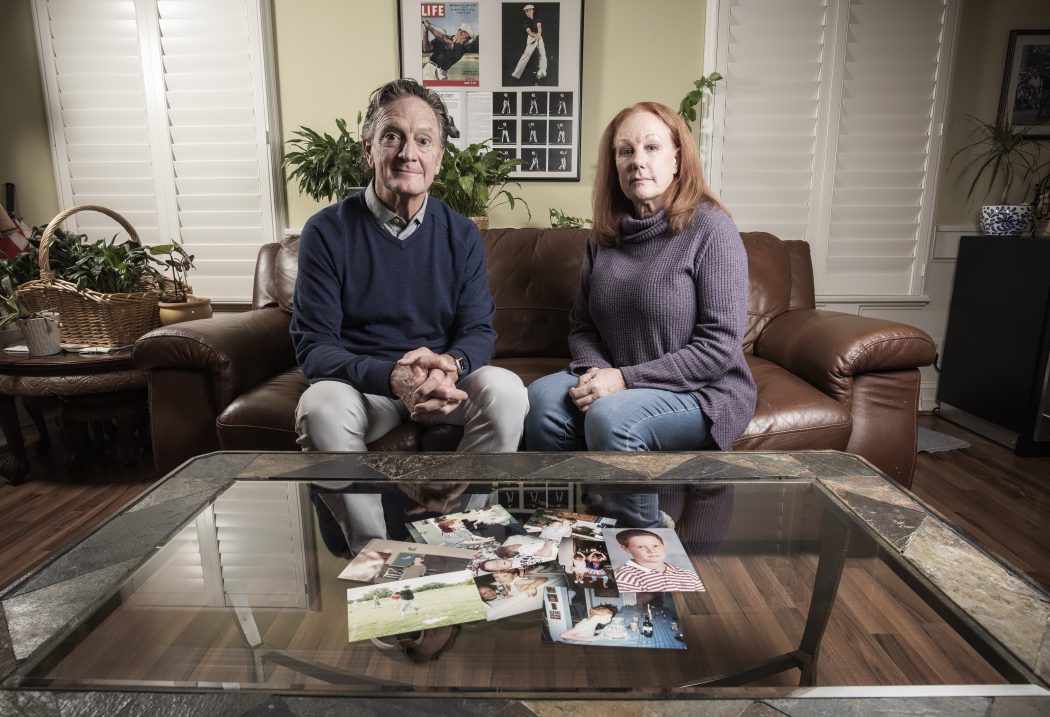
Photography by Danny Fulgencio
Kim and Gilbert Freeman endured the loss of two sons, Jack and Hunt, to heroin overdoses. Now the couple is determined to help those in recovery regain normal lives.
“I’m a fixer,” says Kim, a dentist. “It translates to enabling sometimes, but not always.”
The Freemans’ three sons struggled with substance abuse. Youngest son, Hunt, began using marijuana with a neighbor at the age of 10. All three boys began using alcohol during high school and eventually moved on to cocaine and heroin.
The drugs wreaked havoc. Sons Jack and Ross were talented golfers who were recruited by prestigious universities. They lost those chances by the time they graduated from high school. Hunt attended two middle schools, two high schools and a military school.
Hunt’s first overdose was on his 15th birthday. All three boys were in and out of counseling, rehab, halfway houses and the criminal justice system over the next few years.
Eight years ago, Ross overdosed on heroin and was comatose for four days. He has been sober ever since. He is married, has a son, is employed and turned his addictive ways toward physical fitness. Although Jack was present when Ross overdosed, he continued using.
“I was a denier and an enabler,” Gilbert says. “I tried way too hard to keep him out of jail.”
The Freemans helped Hunt get into a junior college and onto the golf team there, but it was short lived. During his first semester, Hunt was caught using heroin in the dorm after a golf tournament and ended up in jail and rehab.
Hunt and Jack rallied. Hunt became a successful Harley-Davidson salesman, and Jack worked as a golf professional at a country club in Fort Worth.
On Valentine’s Day in 2017, Hunt overdosed on heroin and died at the age of 26. Three months later, Jack relapsed and died at 29 on Mother’s Day.
Still numb from Hunt’s death, the Freemans were angry. Jack’s obituary pulled no punches. The Freemans wrote, “The intolerable pain that addiction reaps in this world must be addressed. Talk about drugs, alcohol and choices with your loved ones.”
Since then, the Freemans have devoted their time and energy to fighting drugs and helping those trying to get clean. They gave several interviews with “CBS Morning Show,” People magazine and more. Gilbert and Ross have spoken to many groups, including high schools, and have assisted families in crisis.
“I urge parents to stay with them, keep loving them, keep trying to find help and support,” Gilbert says.
Kim sold her dental practice and uses her expertise to help those in recovery. She found a need at the 24 Hour Club in East Dallas, a facility offering safe, sober transitional living.
“She offered free dental services to our beloved residents, who through their drug use, have done tremendous damage to their teeth,” CEO Marsha Williamson says. “Many of our residents have received expert dental care to improve their dental health and their appearance.”
East Dallas native and current Lakewood resident Will Byrum was a recipient. He sobered up at the 24, but years of crack and heroin addiction took its toll.
“I was appalled to even look in the mirror because of the horrific state of my teeth,” he says. “I was humiliated. I could not look the world in the eye.”
He reached out to Kim for help and was treated the same day. When the dental work was complete, Byrum was thrilled.
“I’ll never forget the extreme sense of utter relief I felt that first time I looked in the mirror,” he says. “Now I don’t hesitate to smile. What she did reminds me there’s a caring side to this world, a side that will do for others not expecting anything in return. We should all aspire to be so kind.”





